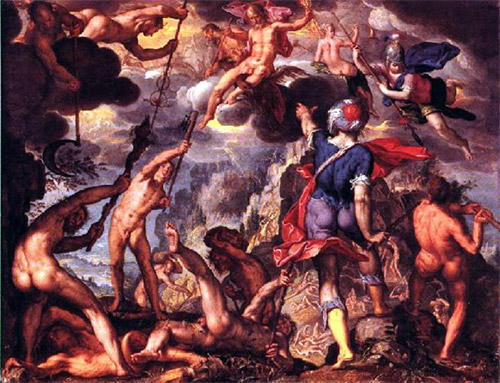It’s easy to smile at the gods of the past and to the people who made sacrifices to Mitra, Zeus, and Osiris. Yet, in every age, there are principles that challenge rationality and that guide thinking. They are dangerous because no one questions them. They are the frame inside which our thinking takes place. Gods are powerful because they are invisible and vice-versa. They are often unnamed, unknowable, invisible.
Today, everyone can easily see the gods of the past, precisely because we do no longer belong to their era. They have become visible and thus powerless.
When a new worldview emerges and spreads, the old views become outdated and the water of credulity gets so low that the old prejudices emerge like sunken rocks from the bottom. The once invisible and now mocked prejudices are the gods that have become visible and thus powerless.
Gods are invisible, yet they make everything else visible in their image.
To see the gods of our time, then, we have to make an effort because they do not appear directly in our discourses. To see them, we need to step out of our familiar conceptual habits. They are the invisible conceptual reference frames that bias our thoughts.
What are the invisible gods of our time? Here are a few good candidate:
- information
- the notion of interiority
- the notion of representation
- the notion of an invisible self
- computation
In the next blogs, I will address each of them and I will show how it is possible to reveal their inconsistency and to what extent they bias our thinking.


